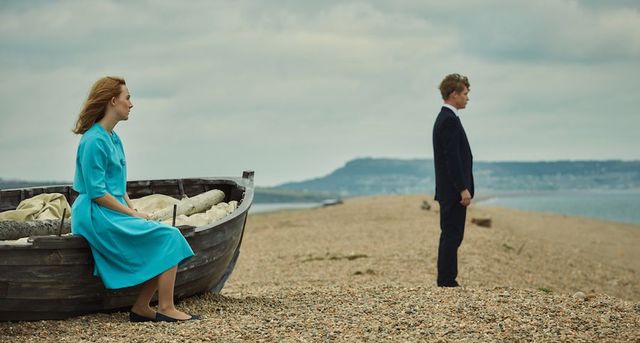
Novelist and screenwriter Ian McEwan remembers clearly the pervasive cultural shift in the 1960s: “I think of my own father. I don't think he ever hugged me, but he did right about after 1969. It affected people who were not necessarily beatniks or hippies.” Unfortunately, Florence Ponting and Edward Mayhew, played by actors Saoirse Ronan (Lady Bird, Brooklyn) and Billy Howle (Dunkirk), wed in 1962, on the cusp of that social change, leaving them painfully ill-quipped to manage trouble on their wedding night: “They don't have the language for it,” says McEwan.
This era, when stiff upper lips struggled to form a kiss, both fosters and ruins a fragile young love, one easily soured by repression and confusion—all playing out against the glorious English countryside, accompanied by Schubert, Mozart, Beethoven and Chuck Berry.
McEwan, of course, needs no introduction, but let's try: The author of Enduring Love, Saturday and Atonement and so many other brilliant novels, he's been nominated for the Booker prize six times—with a win for Amsterdam in 1998. One of the greatest fiction writers, British or otherwise, spoke to British Heritage about his latest film and its setting—“a historical moment just before the wave broke,” he calls it—which left two young lovers unable to bridge the gap between them.
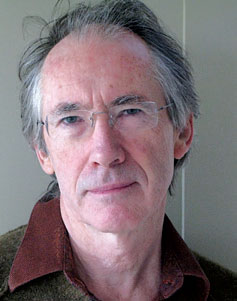
“We can never say that history completely determines everything we are and do, but it certainly plays a very big part. History is almost a character in this movie.” © ANNALENA MCAFEE
British Heritage Travel: A lot of this story takes place, appropriately, on Chesil Beach, a natural wonder on the South coast in Dorset. Tell us about it?
Ian McEwan: It's a rather extraordinary, possibly unique feature of landscape. A long, narrow stick of gravel bounded on the one side by the English Channel and, for at least part of it, by a lagoon, known as the Fleet. It's about 17 miles long. The folklore is indeed that winds and storms over the centuries have graded the gravel so that the smaller stones have slowly become slightly larger stones as you move east to west. That actually happens to be true, as I discovered for myself hiking on it. It's a remarkable place to set a novel and a movie because once you're on it you can't really get off it without walking to the end. It's got a sort of beauty and entrapment about it. Unless you've got a boat with you, you can't get straight inland for some of its length at least because of the inland lagoon. Also, it's really hard work, walking on it. If you want to get fit, just run the 17 miles.
BHT: The story is fixed in a couple places: Edward's family home in the Chilterns, and Oxford. Can you describe some of those sites?
McEwan: The Chiltern hills is a band of fairly low hills, 200 or 300 feet high, wooded valleys, famous for its beech trees. Extremely beautiful, or many parts of it are, that haven't been developed. It lies about 20 miles from Oxford, so a natural place for Edward to go and celebrate when he discovers that he's got a first in history. Oxford, of course, doesn't need much explanation: university town, lively place for a young man to go on a pub crawl, as Edward does before he runs into Florence for the first time.
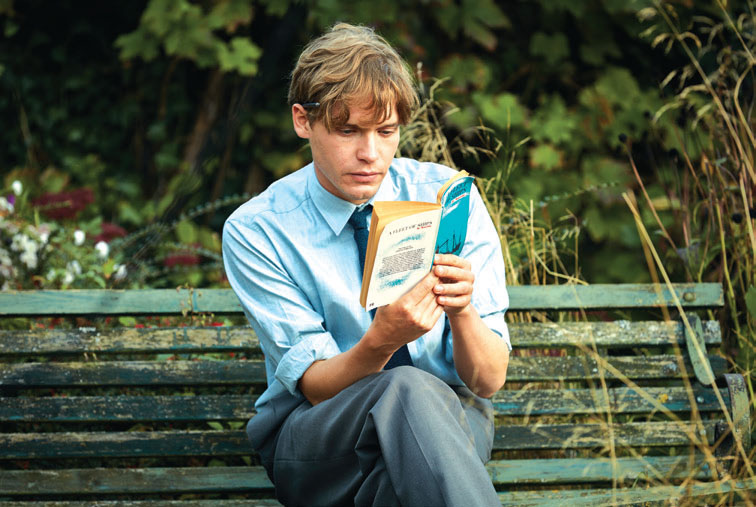
ROBERT VIGLASKY/BLEECKER STREET
BHT: It's so visually beautiful since a lot of the story is set in the English countryside during the summer months.
McEwan: Yes, it was a race against time in the shoot, because we didn't start till October. Fortunately the beech trees keep their green quite late. But yes, it is a very English tale, and the triangle of it is Chesil Beach, the Chilterns, and at Oxford—with a bit of London thrown in.
BHT: Though this is recent history, just 45 years back, these two young adults awkwardly navigating intimacy in the early ’60s feels worlds away.
McEwan: It's a moment in the ’60s, but it doesn't belong to what we call “the ’60s,” I suppose. The pill had hardly entered into general public consciousness in 1962. The general warming up of human relations had not begun, even though rock ’n’ roll music was around. It was a time where young people craved to be adult and mature, rather than sustain a kind of carefree youth that the later ’60s rather idolized and idealized.
For a young man from a certain section of society, urgently wanting sex, the only way to do that was to find a girl and marry her. So they come into this relationship and this marriage away from the confetti and the wedding party and suddenly find themselves alone. They're both well educated, they've got extremely different family circumstances, but crucially they are both sexual virgins, and sexually innocent, and crossing the line at a time when it's not all that easy to speak clearly about your feelings and your fears is really what this story is about.
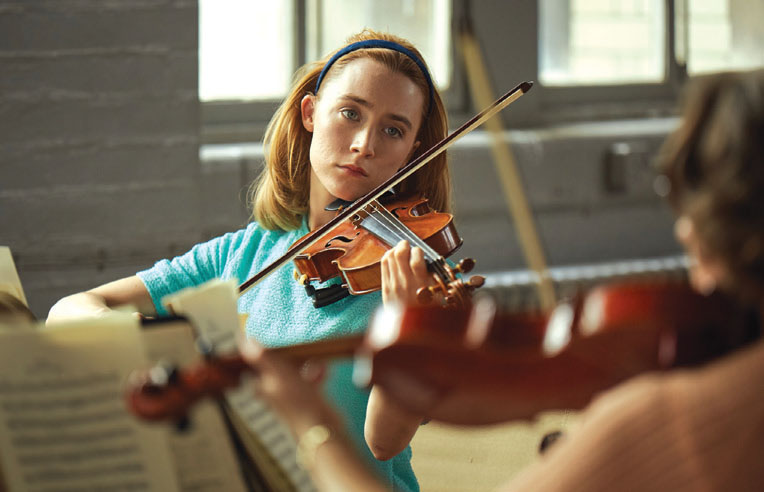
ROBERT VIGLASKY/BLEECKER STREET
BHT: As you say, they're both bright, educated types, yet they're groping for language that's so commonplace today.
McEwan: Exactly. We've all become encouraged to wear our feelings on our sleeves and to speak our feelings. These people haven't even really had the conversation with themselves. They're determined to be grown-up, responsible adults, and getting married is what everyone does.
The thing is, this marriage only lasts six or eight hours. They're not aware fully that they've already achieved the crucial matter: They've fallen in love, but the big issue is the sex itself. And from Edward's point of view, it's got to be a glorious, transcendent moment on the wedding night. They're so tied to this idea, or he is at least. I'd say that when it ends in failure— and crucially when he falls sulkily silent at a moment when she says, ‘Let's go back to the hotel together’—his whole life changes. From there on in, although he'll have other lovers, he'll end up alone. He will never be in love again in the same way.
Meanwhile, we know very little about her in the novel [after the breakup]; she disappears off the page. Although we're aware her string quartet has been a success, but in the movie we'll see a bit more of her.
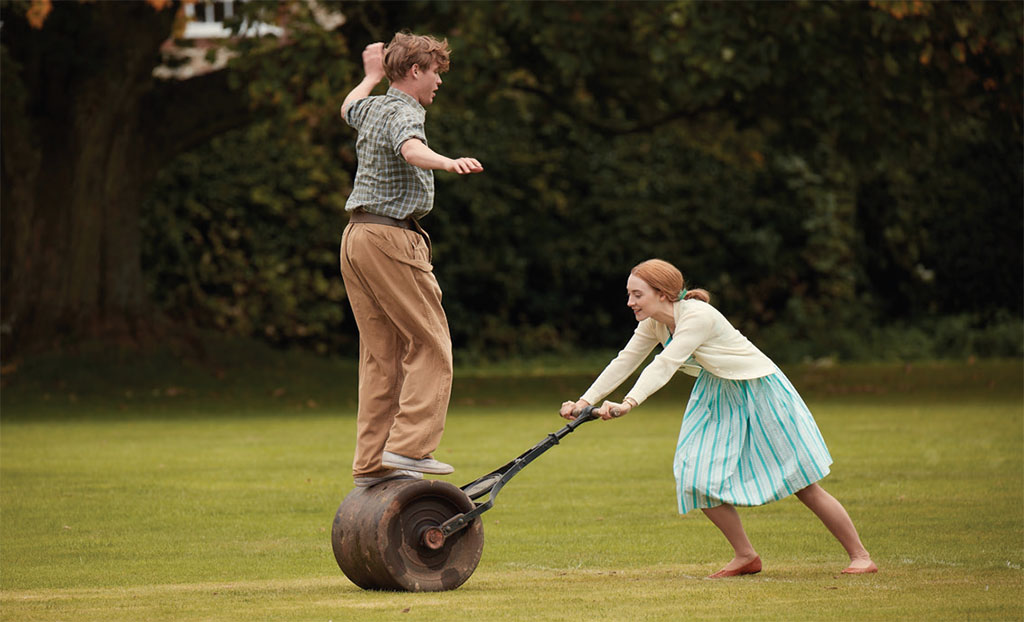
ROBERT VIGLASKY/BLEECKER STREET
BHT: Florence is played by Saoirse Ronan, who also played Briony in Atonement.
McEwan: I think she's absolutely brilliant. Yes, Saoirse and Billy really were terrific right from the beginning in rehearsals. They seemed to click amazingly well; the chemistry is perfect. [It was] very hard to cast Billy's part, because Edward is something of a fighter, a roustabout, a country boy who has the aspirations to be an intellectual, and has a very fine streak of vulnerability and tenderness.
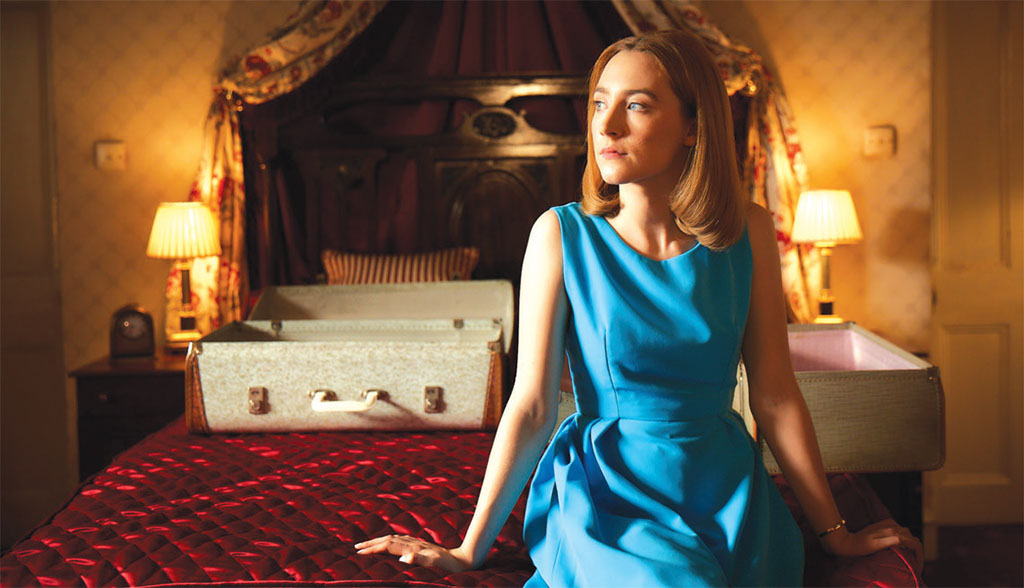
FOCUS FEATURES
BHT: Unlike with Atonement, you wrote the screenplay for this film. How was that, adapting your own work?
McEwan: It was a pleasure, actually. My first reasons for doing it were rather negative in that it was such an intimate story, and delicate, that I didn't really trust anyone else to do it. But once I was engaged with it, all sorts of opportunities came up. There were one or two scenes I wrote that, if they had occurred to me, would have been in the novel.
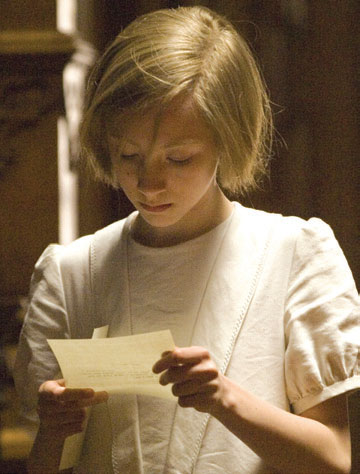
ROBERT VIGLASKY
Saoirse Ronan as Briony Tallis in the 2007 adaptation of McEwan's novel Atonement
BHT: Like what?
McEwan: After Edward and Florence have parted, Edward runs a small record store in London in Camden Town by the lock. One day—this is 10, 12 years after he's last seen Florence—a little girl comes into his shop asking to buy a Chuck Berry record. Something in what she says and [how she] looks and speaks, and the fact she's carrying a violin case, tells him that this is Florence's daughter, the daughter that could have been his.
BHT: It's a tragic loss for him; their repression leads to such a sad parting.
McEwan: You find it in the novels of Jane Austen, and you'll find it here, that a great deal of English literature is caught up with misunderstandings because people don't speak their feelings. On Chesil Beach belongs in a long tradition of the mutual incomprehension that comes from people not saying what they think. There is a class difference too being played out, but it's not vast—I mean, Edward is not exactly working class. His father is a headmaster in a local school, and Florence's mother is an academic and her father is a businessman. So when they discover each other, they are bound by their education, but not by their class.
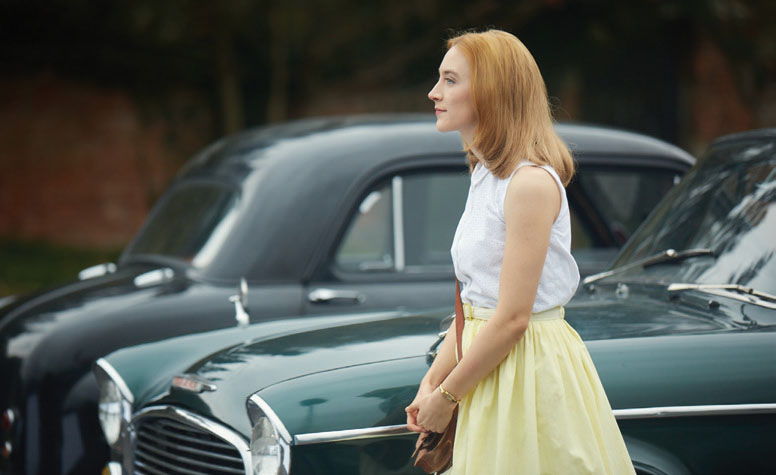
BLEECKER STREET
BHT: Interesting that you mention Jane Austen. In some ways, this feels like a missing scene from Pride and Prejudice, where they get married and it just easily skips over to calm marital bliss.
McEwan: There are many, many novels, not only Jane Austen's, but well into the 19th century, where getting engaged and being about to marry is the final act. That's where good sense and money and circumstances and love all cohere into a resounding sort of tonic chord.
This reverses the whole procedure. Trouble begins with the wedding night—when you're left alone and your selfhood is just stripped naked, and you've got to get through it. So the troubles are not the ones that lead up to the delightful resolution of the anticipated sound of wedding bells. The wedding bells have just stopped ringing, and they're still sounding in your head, all the confetti's been brushed off your shoulder—and you now have to begin.
This conversation has been lightly edited for size and clarity. On Chesil Beach is in select theaters starting May 18.
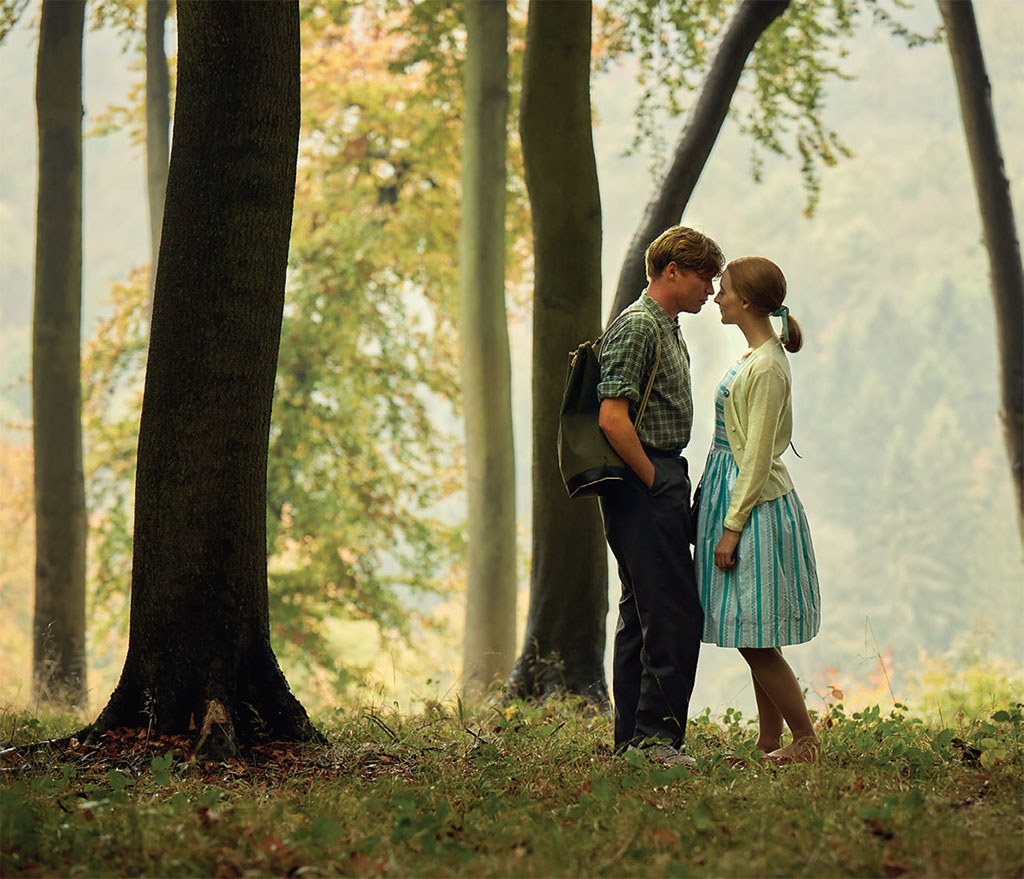





Comments